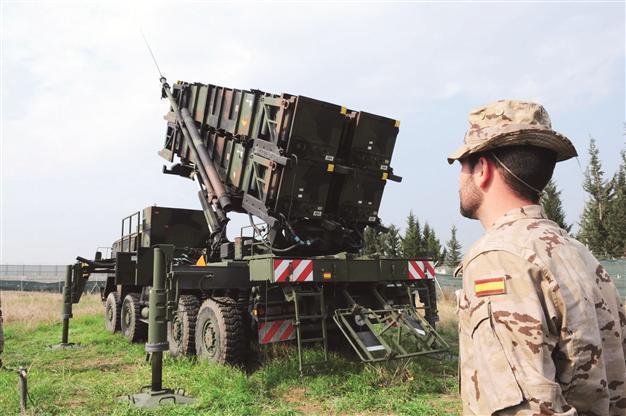Turkey won’t decide on air defense deal before Apr. 24
Burak Bekdil

The defense committe selected CPMIEC as the best bidder, Eurosam as the second and a partnership of Raytheon and Lockheed Martin as the third. DHA Photo
Turkey will refrain from selecting a winner for its disputed, multibillion dollar contract for the construction of its first long-range air and anti-missile defense system before April 24, the centennial commemoration of the 1915 killings of Ottoman Armenians, according to senior officials.“We have agreed with the government leaders not to rush to a decision any time soon,” one defense procurement official said. “A decision before April 24 is out of the question.”
A senior diplomat confirmed that Ankara first wants to see the U.S. and French positions on the “genocide claims” before awarding a sizeable contract “to a bidder potentially from one of these countries.”
“How these countries observe the centennial of the events [of 1915-1920] will be an important input for our final decision,” he said.
After Ankara selected a Chinese company in September 2013 to build the air defense architecture and came under heavy pressure from its Western allies for the decision, it also opened parallel negotiations this summer with a European contender in the multibillion dollar competition.
Contract negotiations with the Chinese manufacturer, China Precision Machinery Import Export Corp (CPMIEC), are also in progress, but President Recep Tayyip Erdoğan has said that talks have also opened with Eurosam, the European contender in the program.
Following an assessment by Turkey’s top defense procurement agency, the Defense Industry Executive Committee selected CPMIEC as the best bidder and Eurosam as the second. A U.S. partnership of Raytheon and Lockheed Martin came third in the bidding. CPMIEC offered a solution with a price tag of $3.44 billion.
A defense industry source said he expected tough rivalry between French and U.S. contenders in the second half of 2015. “Both of them are surely aware that how their governments tackle the centennial will be critical for success or failure,” he said.
















